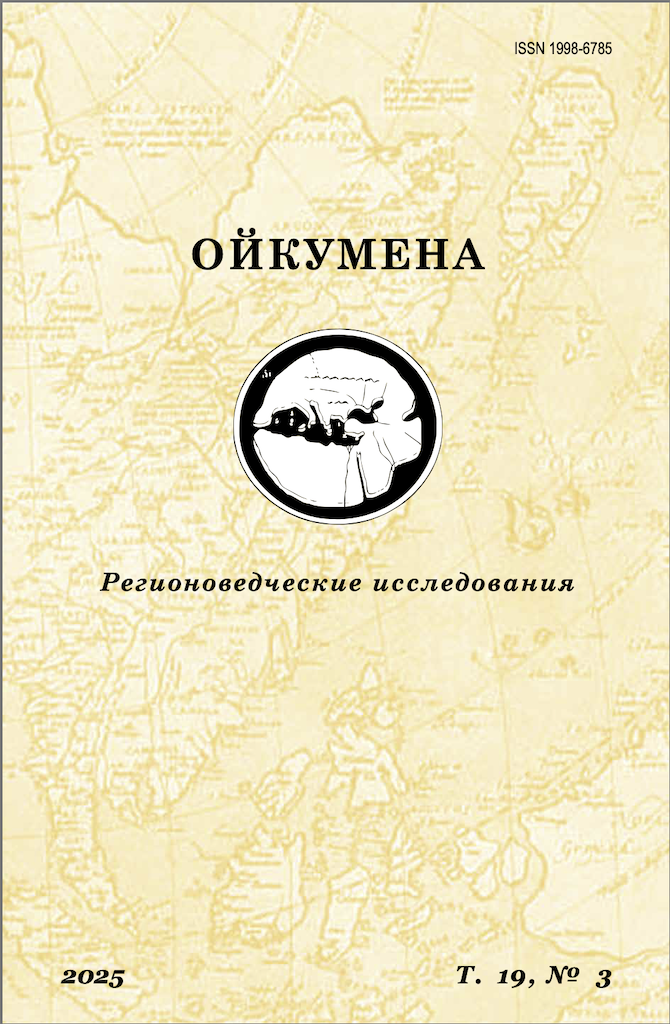employee
Moscow, Moscow, Russian Federation
An overview of the experience of using artificial intelligence for the analysis of qualitative data, and, in particu- lar, the development of sociological categories and concepts in qualitative research is presented coding the interview with a woman who experienced pregnancy during her student years. Based on the logic of coding for subsequent conceptualization of data, a systematization of tasks for artificial intelligence (a large language model) is proposed for using it as an assistant in data analysis and analytical triangulation.
qualitative analysis, concepts and categories, thematic coding, theoretical sensitivity, Open AI, triangulation with AI
1. Davydov, S. G., Matveeva, N. N., Ademukova, N. V., Vichkanova, A. A. Artificial intelligence in Russian higher education: Current state and development prospects // University Management: Practice and Analysis. 2024. Vol. 28. No. 3. P. 32–44. (In Russ.). DOI: https://doi.org/10.15826/umpa.2024.03.023; EDN: https://elibrary.ru/FELSPP
2. Galkin, K. A., Petukhova, I. S., Parfenova, O. A. OPEN AI as an assistant in interview analysis // Sotsiologicheskie Issledovaniya. 2025. No. 4. P. 105–116. https://doi.org/10.31857/S0132162525040095 (In Russ.). EDN: https://elibrary.ru/HMWTVK
3. Gotlib A. S. Autoethnography (a conversation with myself in two registers). (Part I). // Sociology: Methodology, Methods, Mathematical Modelling (Sociology: 4M). 2016. No. 18. P. 5–16. (In Russ.).
4. Zabaev I. V. The logic of data analysis in grounded theory: B. Glaser’s version. // Sociology: Methodology, Methods, Mathematical Modelling (Sociology: 4M). 2011. No. 32. P. 124–142. (In Russ.). EDN: https://elibrary.ru/OJILPH
5. Moiseev, S., Staf, M. "There’s an AI for that": Opportunities of ChatGPT for working with open data sources. // Sociodigger. 2023. Vol. 4. Issue 7–8(27). URL: https://sociodigger.ru/articles/articles-page/algoritmy- iskusstvennogo-intellekta-v-prikladnykh- sociologicheskikh-issledovanijakh (accessed 13.07.2025) (In Russ.).
6. Practices of qualitative data analysis in the social sciences: A textbook / Ed. E. V. Polukhina. Moscow: HSE Publishing House, 2023. 383 p. (In Russ.).
7. Rozhdestvenskaya, E. Yu. INTER-Encyclopedia: Narrative interview. // Interaction. Interview. Interpretation. 2020. Vol. 12. No. 4. P. 114–127. https://doi.org/10.19181/inter.2020.12.4.8 (In Russ.). EDN: https://elibrary.ru/FDKZEU
8. Shteinberg I. E. The "long table" method in qualitative field sociological research. Moscow: VCIOM, 2021. 300 p (In Russ.).
9. Bail C. A. Can Generative AI improve social science? // Proceedings of the National Academy of Sciences. 2024. No. 21 (121). e2314021121. https://doi.org/10.1073/pnas.2314021121 EDN: https://elibrary.ru/MVSQQR
10. Charmaz K. Constructing Grounded Theory: A Practical Guide Through Qualitative Analysis. Thousand Oaks (CA): Sage, 2006. 224 p.
11. Clarke A. Situational Analysis: Grounded Theory after the Postmodern Turn. Thousand Oaks (CA): Sage, 2005. 365 p. DOI: https://doi.org/10.4135/9781412985833
12. Clarke A. Situational Analyses: Grounded Theory Mapping After the Postmodern Turn // Symbolic Interaction. 2003. 26 (4). P. 553–576. https://doi.org/10.1525/si.2003.26.4.553
13. Denzin N. K. The research act: A theoretical introduction to sociological methods (2nd ed.). New York, NY: McGraw Hill, 1978. 379 p.
14. Glaser B. G., Strauss A. L. The Discovery of Grounded Theory: Strategies for Qualitative Research. New York: Aldine, 1967. 271 p.
15. Glaser B. G. Theoretical Sensitivity: Advances in the Methodology of Grounded Theory. Mill Valley (CA): Sociology Press, 1978. 164 p.
16. Guest G., MacQueen K. M., Namey E. E. Applied Thematic Analysis. Thousand Oaks: SAGE Publications, Inc. 2012. 320 p. https://doi.org/10.4135/9781483384436
17. Ledwith M., Springett J. Participatory practice. community based action for transformative change. Bristol: Polity Press. 2010. 312 p. DOI: https://doi.org/10.2307/j.ctt1t89038
18. Morgan D. L. Exploring the Use of Artificial Intelligence for Qualitative Data Analysis: The Case of ChatGPT // International Journal of Qualitative Methods. 2023. No. 22 (6). P. 1–10. https://doi.org/10.1177/16094069231211248 EDN: https://elibrary.ru/HZZFII
19. Naeem M., Smith T., Thomas L. Thematic Analysis and Artificial Intelligence: A Step-by-Step Process for Using ChatGPT in Thematic Analysis // International Journal of Qualitative Methods. Vol. 2023. No. 24 (7). P. 1–18. https://doi.org/10.1177/16094069251333886
20. The SAGE Handbook of action research: Participative inquiry and practice. London, UK: Sage, 2001. 720 p.
21. Ukanwa K. Algorithmic bias: Social science research integration through the 3-D Dependable AI Framework // Current Opinion in Psychology. 2024. Vol. 58. 101836. https://doi.org/10.1016/j.copsyc.2024.101836 EDN: https://elibrary.ru/MZZOUG











